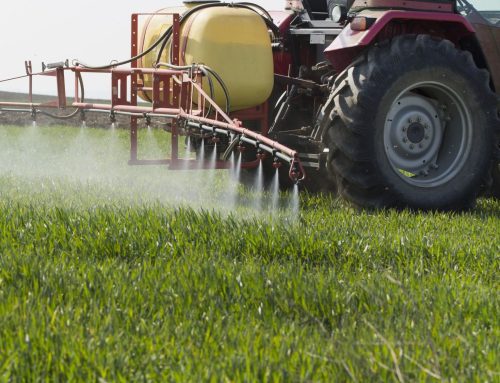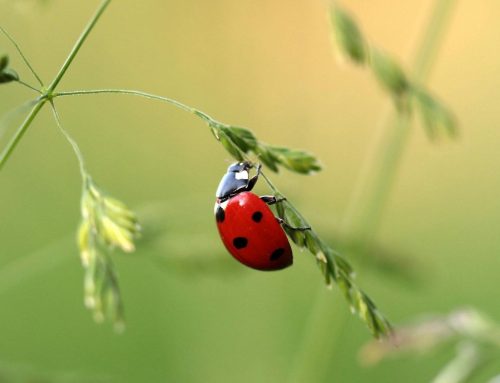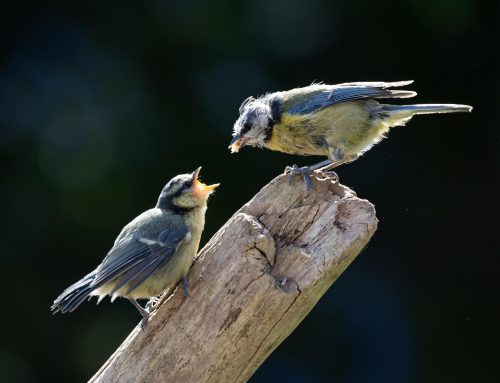by Patricia Bischof, Breast Cancer UK
Breast Cancer is the most common cancer in the UK – with 56,000 new cases every year. The causes of breast cancer are not fully understood. Studies have identified numerous factors which can increase or decrease breast cancer risk, including those associated with genetics, circulating hormone levels and lifestyle. For example, being overweight, consuming alcohol, having a poor diet are factors that increase risk, while engaging in physical activity, having a healthy diet and breastfeeding are factors that help reduce risk.
However, environmental risk factors, including exposure to potentially harmful chemicals such as pesticides, can also play a key role.
How are pesticides used and what is the impact on our health?
Pesticides are used to kill pests, including insects (insecticides), rodents (rodenticides), fungi (fungicides) and weeds (herbicides). Many are toxic and potentially harmful to animals, plants and humans. Some have the potential to disrupt our hormone systems, known as endocrine disrupting chemicals or EDCs, and can play a role in development of cancers, such as non-Hodgkin lymphoma, colorectal and breast cancers.
We get exposed to a cocktail of pesticides primarily through the food we eat and the water we drink. Pesticide residues are often found in or on food after pesticides are used on food crops; these may be particularly harmful to our health. They may build up in our bodies and are routinely found in fat tissue, blood and urine.

Why are we concerned about pesticide exposure?
Pesticides could increase breast cancer risk by acting as carcinogens (cancer-causing agents) causing gene mutations that lead to, or promote cancer, or may act as EDCs and disrupt sex hormones including oestrogen. High levels of natural oestrogen increase breast cancer risk. Similarly, EDCs that affect oestrogen by mimicking its actions or effectively increasing its concentration in the body, may also increase risk. Furthermore, exposure to such pesticides in the womb can affect breast development and make us more vulnerable to developing breast cancer as adults.
Several pesticides are banned as they harm our health or the environment, including some linked to breast cancer. The insecticide DDT was banned in the UK in 1986, due to various health concerns. Human population studies have since shown long-term exposure to DDT increases breast cancer risk. Population studies also suggest exposure to banned insecticides dieldrin and chlorpyrifos, may increase risk. Other banned insecticides that are EDCs and/or cause mammary tumours in animals include lindane, chlorpyrifos and parathion.
Many pesticides used today are EDCs that affect oestrogen and/or cause mammary cancer in animals; these may also increase breast cancer risk. Examples include the insecticide deltamethrin and the herbicide glyphosate (found in many products including “Round-up”), which cause mammary tumours in rodents and interfere with oestrogen. In 2015, glyphosate and malathion (an insecticide used in greenhouses) were classified as probable human carcinogens. Human population studies suggest that past exposure to malathion and the fungicide captan (used to control plant diseases) increase breast cancer risk. Most studies examining pesticide exposure with breast cancer incidence show an elevated risk.
Only a handful of pesticides are approved for use in organic food. As a result, organic food contains less pesticide residue than conventionally farmed food. Some studies suggest an organic diet reduces breast cancer risk however more long-term studies are needed to clarify this.
In December 2020, the Government confirmed its intention to publish a new ‘National Action Plan for the Sustainable Use of Pesticides’ (NAP) which committed to “minimise the risks and impacts of pesticides to human health and the environment”. Breast Cancer UK is calling on the NAP to:
- Introduce pesticide reduction targets to phase out substances that pose a high risk to human health.
- Give public health bodies direct responsibilities to monitor, research and recommend restrictions on pesticides of concern.
- Ensure pesticide authorisations and restrictions are based on a strict interpretation of the precautionary principle.
BCUK has joined The Pesticide Collaboration and we are proud to campaign alongside PAN UK and other NGOs to call on the Government to urgently address the impact of pesticide exposure on the nation’s health.
For more information on the links between pesticides and breast cancer, see our pesticide factsheets and for tips on how to reduce your exposure visit our prevention hub.

Patricia is the Scientific Research Officer at Breast Cancer UK, a charity dedicated to the prevention of breast cancer by tackling the environmental and lifestyle causes of the disease. She is responsible for providing scientific information, content and advice on preventable risk factors of breast cancer.
Explore further:





